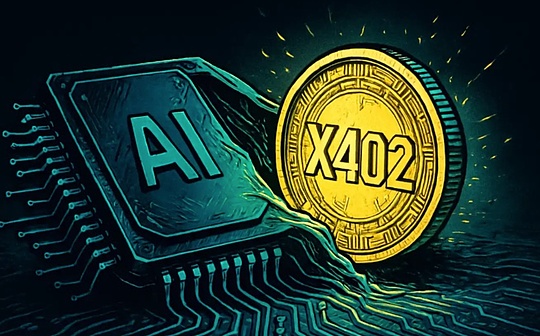
Author: Bitke
With the rapid development of the cryptocurrency market, governments of various countries have formulated relevant policies to regulate market behavior, protect the interests of investors, and prevent financial risks.As an important area of the global cryptocurrency market, Asia has an important impact on the global market.
Vietnam’s crypto market supervision policy
Background and status quo
The development of the cryptocurrency market in Vietnam is relatively late, but the rapid rise in a short period of time has attracted a large number of investors and enterprises.However, due to the lack of clear legal framework and regulatory mechanism, many risks and problems have emerged in the market.In recent years, the Vietnamese government has begun to attach importance to the supervision of cryptocurrencies and gradually introduced relevant policies.
Main policies and regulations
Vietnam does not seem to have a very clear legal framework to regulate cryptocurrency and blockchain technology.In 2018, the Vietnamese government officially banned the use of cryptocurrencies as a payment method, but did not prohibit the transaction and investment of cryptocurrencies.The National Bank of Vietnam also banned commercial banks and payment service providers to conduct transactions involving cryptocurrencies, and warned that this might increase the risk of money laundering and terrorist financing.The Ministry of Justice of Vietnam has submitted a report on the cryptocurrency supervision plan to the government to analyze the three regulatory policies of the world’s major jurisdictions: loose supervision, direct prohibition of prohibition, and legalized transactions under certain conditions, which shows that the Vietnamese government is considering how to be in how to be inWhile not suppressing innovation, ensure the stability and security of the market.
Although the regulatory policy has not yet been clarified, Vietnam still shows a strong growth momentum in the use of cryptocurrencies.According to CHAINALYSIS, Vietnam ranked first in the global cryptocurrency adoption of the index for two consecutive years, showing the high degree of acceptance of cryptocurrencies in the country.
Policy impact and future outlook
Vietnam’s cryptocurrency supervision policies are stricter and aims to prevent financial risks and illegal activities.However, this also limits the development of the market to a certain extent.In the future, with the increase in the acceptance of cryptocurrencies worldwide, Vietnam may gradually adjust policies and seek balanced development and risk prevention.The Vietnamese government has instructed the central bank to study cryptocurrencies and virtual assets to prevent money laundering risks and require the Ministry of Finance to formulate a legal framework for virtual assets by May 2025.This means that in the next few years, Vietnam may have a clearer and specific regulatory policy, which will have a significant impact on the cryptocurrency market.
Generally speaking, Vietnam’s cryptocurrency and blockchain supervision policies are still being formed. The changes in the government’s attitude and policy will have a profound impact on the crypto market in the country and the entire Southeast Asia.Pay attention to the dynamics of the Vietnamese government in order to adapt to possible legal changes and regulatory requirements in a timely manner.
Malaysia’s encryption market supervision policy
Background and status quo
Malaysia occupies an important position in the cryptocurrency market in Southeast Asia, and its regulatory policies are relatively complete, providing a guarantee for the healthy development of the market.The Malaysian government actively promotes fintech innovation, while paying attention to risk control.Malaysia has taken active measures in the supervision of cryptocurrencies and blockchain to ensure the integrity of the financial market and prevent illegal activities.
Main policies and regulations
Malaysia has previously updated the “Act of Anti -Money Laundering, Anti -Terrorism financing and illegal activity income” to incorporate cryptocurrency activities into the scope of supervision.The new regulations require that the cryptocurrency exchanges in Malaysia strictly operate in accordance with KYC requirements, conduct due diligence investigations on all customers, and report to the institution when they find any suspected money laundering and terrorist financing.
The main regulatory agencies in Malaysia include the National Bank of Malaysia (BNM) and the Malaysian Securities Committee (SC).BNM is responsible for formulating anti -money laundering and anti -terrorism financing policies, while SC is responsible for regulating the securities market, including cryptocurrency trading Malaysia Securities Committee (SC) issued a guideline on cryptocurrency regulatory, the Malaysian Securities Commission accepts the Digital Asset Exchange (DAX)Registration application to ensure that market participants meet the regulatory requirements.
Malaysia requires that the cryptocurrency trading and customers to conduct due diligence when establishing a business relationship with customers, and collect information such as full names, addresses and birthdays of customers.In addition, the exchange must report any suspicious transactions to SC and abide by relevant regulatory requirements.Malaysia is friendly to the cryptocurrency supervision environment and allows crypto assets approved by transactions.However, cryptocurrency exchanges must abide by SC regulations and abide by local laws, which means that the exchange needs to obtain SC recognition and meet its regulatory standards in order to legally operate in Malaysia.
Policy impact and future outlook
Malaysia is friendly to the cryptocurrency supervision environment and allows crypto assets approved by transactions.However, cryptocurrency exchanges must abide by SC regulations and abide by local laws.This means that the exchange needs to obtain SC recognition and meet its regulatory standards in order to legally operate in Malaysia.Malaysia’s cryptocurrency market supervision policy laid the foundation for the standardization and transparency of the market and attracted a large number of compliance companies and investors.In the future, Malaysia may further improve the legal framework and promote the sustainable and healthy development of the market.
In general, Malaysia’s regulatory policy aims to improve the transparency of cryptocurrencies and prevent it from being used for illegal activities. At the same time, it also encourages compliance asset transactions and blockchain technology.Malaysia’s regulatory framework reflects support for financial innovation, while ensuring the stability and security of the financial market.
Indonesia’s crypto market supervision policy
Background and status quo
Indonesia, as the fourth largest country in the world, has huge potential for cryptocurrency markets.However, due to the failure of the financial market and the incomplete regulatory system, the development of the cryptocurrency market in Indonesia faces many challenges.In recent years, the Indonesian government has gradually introduced policies to try to regulate market behavior.
Main policies and regulations
The Indonesian central bank has issued a notice that Bitcoin and other cryptocurrencies are prohibited, emphasizing that only the Indonesian shield is a legitimate payment method.In addition, the country’s commodity futures trading regulatory agency (BAPPPEBTI) stipulates that cryptocurrencies are regarded as commodities and allow them to trade on the commodity exchange, but they must comply with relevant regulations and further clarify the registration requirements and of the cryptocurrency trading platform.Operating specifications require trading platforms to have certain capital and risk management capabilities.
The Indonesian Financial Services Authority (OJK) is the main regulatory agency of the country’s financial services. OJK has announced that it will implement new cryptocurrency regulations. These regulations aim to use emerging technologies to strengthen the financial industry and emphasize the digital operations of financial institutions.The regulations will cover digital financial assets including cryptocurrencies, which aims to promote the progress of the financial industry.OJK’s measure marks a positive step for preparing for domestic cryptocurrency control.
The new guidance policy of Indonesia focuses on how financial services and products have evolved due to the innovation of financial sector, which provides a framework for the digital operations of financial institutions, emphasizing customer protection. OJK also emphasizes the importance of international cooperation.Singapore and Dubai’s financial regulatory agencies cooperate to formulate a comprehensive strategy of cryptocurrencies. These partnerships, including the memorandum of understanding with major financial institutions, aims to lay the foundation for cryptocurrency policy and reflect the core position of Indonesia in the digital revolution.
Policy impact and future outlook
Although Indonesian regulators are considering changing the dual taxation system for cryptocurrencies, this potential reform is a positive step to improve the use of cryptocurrencies in the country, but the legislative uncertainty of regulatory changes may affect market stability.In addition, the high volatility and technical risks of cryptocurrencies, such as security and fraud, need to pay attention to it.
Indonesia’s cryptocurrency supervision policy has gradually clarified, providing a legal framework for the market.However, the payment ban has limited the widespread application of cryptocurrencies to a certain extent.In the future, Indonesia may adjust its policies in a timely manner to promote the balance of innovation and risk control according to market development.
In summary, Indonesia is moving towards the establishment of a more mature and complete cryptocurrency and blockchain regulatory environment.With the implementation of new regulations and the strengthening of international cooperation, Indonesia is expected to make significant progress in the supervision of cryptocurrencies in the next few years.Investors and market participants need to pay close attention to the dynamics of the Indonesian government in order to adapt to possible legal changes and regulatory requirements in time.
Japan’s crypto market supervision policy
Background and status quo
Japan is one of the earliest countries in the world to legislate and regulate cryptocurrencies, and its market size and influence are at the forefront of the world.The Japanese government has a relatively open attitude towards cryptocurrencies, while paying attention to protecting investors and preventing risks.Japan has shown mature and stable characteristics in the supervision of cryptocurrencies and blockchain, and its policy reflects the balanced and cautious management of new technologies.
Main policies and regulations
The Japanese government’s high attention to the security of digital currency transactions began in the MT.GOX incident in 2014. This incident has become an important turning point for the development of Japanese digital currency supervision policies.Subsequently, the Japanese cabinet passed the amendment to the “Fund Settlement Law”, which officially included digital currency into the legal regulation system, and recognized the legitimacy of digital currencies.The Japanese government has invested a lot of resources in the research and application of blockchain technology.For example, the Japanese Cabinet House has set up a number of special funds to support the innovation and practical application of blockchain technology.Japan also actively promotes international cooperation to communicate and cooperate with other countries in the standard formulation and regulatory framework construction of blockchain technology.
Not only that, the Japanese Parliament passed a bill, which clarified the legal status of stable currency and defined it in nature as digital currencies. Japan became one of the first major economies to introduce stable currency legal frameworks.Japan taxes the transaction income of digital currencies, and the tax category is “other or miscellaneous income”, and it uses a 5%-45%progressive tax rate.Since July 1, 2017, digital currency does not need to pay consumption tax.
Policy impact and future outlook
Japan’s cryptocurrency supervision policy provides a clear legal framework for the development of the market and has attracted a large number of enterprises and investors.In the future, Japan may continue to improve relevant laws and regulations to promote the standardization and transparent development of the market.In summary, Japan’s cryptocurrency and blockchain regulatory policies reflect their support for financial innovation, while ensuring the stability and security of the financial market.The Japanese government’s policy and regulatory measures aims to promote the healthy development of blockchain technology, while creating more opportunities for Japanese companies and consumers.
South Korea’s crypto market supervision policy
Background and status quo
South Korea is an important participant in the global cryptocurrency market, and its market size and transaction activity are at the forefront.The South Korean government has a cautious attitude towards cryptocurrencies and gradually introduced a series of regulatory policies.The South Korean government initially held cautious attitudes towards blockchain and cryptocurrencies, but with the development of the market and the high degree of participation of the people, the government gradually shifted to support and standardize this field.South Korea’s regulatory policy in the field of cryptocurrencies and blockchain has undergone a transformation from conservative to open, reflecting the country’s gradual acceptance and supervision of this emerging market.
Main policies and regulations
The South Korean Congress has adopted the “Report and Utilization of specific financial transaction information” (special financial law), which provides a legal basis for cryptocurrencies.The law defines the scope and virtual currency of virtual asset companies, and requires that cryptocurrency issuance directions disclose white paper, legal opinions and business reports to enhance transparency and investor protection.The South Korean government announced that it will tax virtual asset income, and from 2023, it will be taxed at a tax rate of 20%of virtual assets such as virtual currencies with virtual currencies of more than 2.5 million won in one year.This policy aims to rationalize the tax management of cryptocurrency transactions, which also reflects the government’s recognition of the cryptocurrency market.South Korea plans to establish the Digital Assets Commission as a specialized cryptocurrency regulatory agency and is responsible for controlling the country’s cryptocurrency industry.This measure indicates the importance of the Korean government for cryptocurrency supervision and the commitment to the healthy development of the industry.
Policy impact and future outlook
South Korea’s cryptocurrency supervision policy focuses on protecting investors and preventing risks, providing guarantee for the healthy development of the market.In the future, South Korea may adjust policies in a timely manner according to market development to promote the balance of fintech innovation and risk control.In summary, South Korea’s cryptocurrency and blockchain supervision policies reflect the government’s support for financial innovation and the emphasis on market stability.By formulating strict regulatory standards, strengthening anti -money laundering agreements, and ensuring that compliant operators can operate, South Korea is taking major measures to protect investors and maintain the stability of the financial market.
in conclusion
The cryptocurrency supervision policies of Asian countries have their own characteristics, reflecting the different attitudes and management ideas of various countries to the cryptocurrency market.Vietnam, Malaysia, Indonesia, Japan and South Korea’s policies are constantly evolving to cope with market changes and technological development.
Generally speaking, these policies provide important guarantees for the standardization and transparent development of the market, and at the same time, it also limits market innovation and vitality to a certain extent.In the future, with the further maturity of the global cryptocurrency market, policies of various countries may gradually converge and jointly promote the healthy development of the market.








